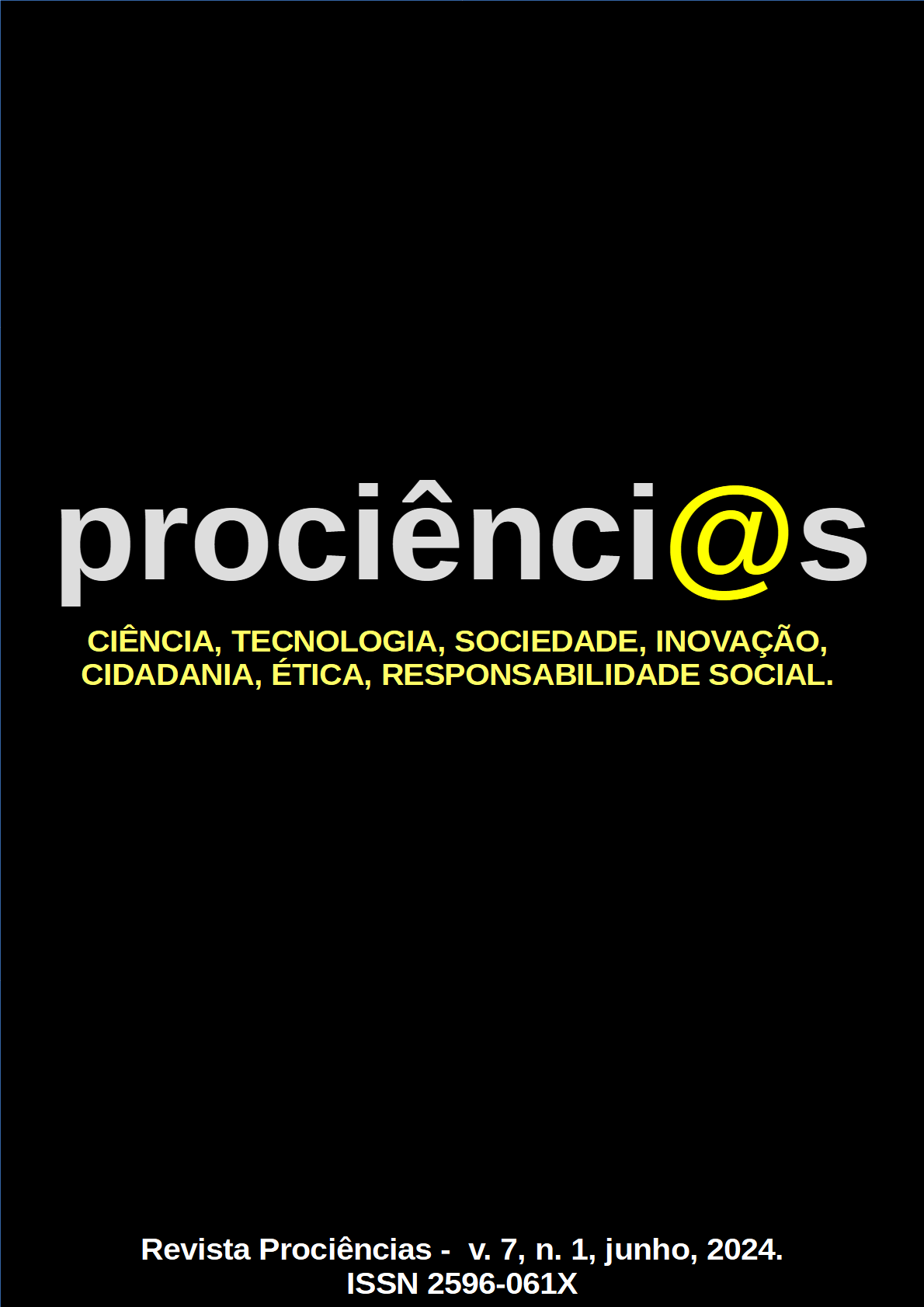NEW APPROACHES FOR LINEAR ALGEBRA TEACHING IN THE TECHNOLOGY ERA: ANALYSIS IN THE CONTEXT OF POST-PANDEMIC REMOTE TEACHING
Keywords:
Hybrid teaching. Post-pandemic. Teaching technologies. Linear Algebra.
Abstract
The COVID-19 pandemic had a significant impact on in-person university education worldwide, leading to the widespread adoption of distance learning in Brazil. However, the transition to remote learning has brought significant challenges for students and teachers, with many students struggling to keep up with the content. With the return to in-person activities, the question arises of how to regain students' interest and motivation while delivering quality education. The article discusses effective strategies for adapting linear Algebra teaching to a post-pandemic hybrid environment, such as the use of interactive resources and the creation of practical activities that can be performed remotely.
Downloads
Download data is not yet available.
References
ALMEIDA, Maria Elizabeth Bianconcini de. Educação a distância na internet: abordagens e contribuições dos ambientes digitais de aprendizagem. Educação e pesquisa, v. 29, n. 02, p. 327-340, 2003.
AMANCIO, Daniel de Traglia; SANZOVO, Daniel Trevisan. Ensino de Matemática por meio das tecnologias digitais. Revista Educação Pública, v. 20, nº 47, dezembro de 2020. Disponível em: https://educacaopublica.cecierj.edu.br/artigos/20/47/ensino-de-matematica-por-meio-das-tecnologias-digitais
BACICH, Lilian; NETO, Adolfo Tanzi; DE MELLO TREVISANI, Fernando. Ensino híbrido: personalização e tecnologia na educação. Penso Editora, 2015.
BERBEL, Neusi. As metodologias ativas e a promoção da autonomia dos estudantes. Semina: Ciências Sociais e Humanas, Londrina, v. 32, n. 1, p. 25-40, jan./jun. 2011.
BRASIL. Ministério da Saúde. Gabinete do Ministro. PORTARIA Nº 343, DE 17 DE MARÇO DE 2020. Brasília, 2020.
CUNHA, Leonardo Ferreira Farias da; SILVA, Alcineia de Souza; SILVA, Aurênio Pereira da. O ensino remoto no Brasil em tempos de pandemia: diálogos acerca da qualidade e do direito e acesso à educação. Revista Com Censo: Estudos Educacionais do Distrito Federal, Brasília, v. 7, n. 3, p. 27-37, ago. 2020. Disponível em: https://repositorio.unb.br/handle/10482/40014. Acesso em: 10 mai. 2023.
FARIAS, George; SILVA NETA, Maria de Lourdes da. Um estudo sobre a evasão no curso de Engenharia Civil. Revista do Instituto de Políticas Públicas de Marília, 6(2), 47–62, 2020. https://doi.org/10.36311/2447-780X.2020.v6.n2.04.p47
MOODLE. Documentação do Moodle em português. Disponível em:
https://docs.moodle.org/all/pt_br/. Acesso em 10 mai. 2023.
MOREIRA, J. António; HENRIQUES, Susana; BARROS, Daniela Melaré Vieira. Transitando de um ensino remoto emergencial para uma educação digital em rede, em tempos de pandemia. Dialogia, p. 351-364, 2020.
RONDINI, Carina Alexandra et al. Pandemia do covid-19 e o ensino remoto emergencial: mudanças na práxis docente. Interfaces Científicas-Educação, v. 10, n. 1, p. 41-57, 2020.
AMANCIO, Daniel de Traglia; SANZOVO, Daniel Trevisan. Ensino de Matemática por meio das tecnologias digitais. Revista Educação Pública, v. 20, nº 47, dezembro de 2020. Disponível em: https://educacaopublica.cecierj.edu.br/artigos/20/47/ensino-de-matematica-por-meio-das-tecnologias-digitais
BACICH, Lilian; NETO, Adolfo Tanzi; DE MELLO TREVISANI, Fernando. Ensino híbrido: personalização e tecnologia na educação. Penso Editora, 2015.
BERBEL, Neusi. As metodologias ativas e a promoção da autonomia dos estudantes. Semina: Ciências Sociais e Humanas, Londrina, v. 32, n. 1, p. 25-40, jan./jun. 2011.
BRASIL. Ministério da Saúde. Gabinete do Ministro. PORTARIA Nº 343, DE 17 DE MARÇO DE 2020. Brasília, 2020.
CUNHA, Leonardo Ferreira Farias da; SILVA, Alcineia de Souza; SILVA, Aurênio Pereira da. O ensino remoto no Brasil em tempos de pandemia: diálogos acerca da qualidade e do direito e acesso à educação. Revista Com Censo: Estudos Educacionais do Distrito Federal, Brasília, v. 7, n. 3, p. 27-37, ago. 2020. Disponível em: https://repositorio.unb.br/handle/10482/40014. Acesso em: 10 mai. 2023.
FARIAS, George; SILVA NETA, Maria de Lourdes da. Um estudo sobre a evasão no curso de Engenharia Civil. Revista do Instituto de Políticas Públicas de Marília, 6(2), 47–62, 2020. https://doi.org/10.36311/2447-780X.2020.v6.n2.04.p47
MOODLE. Documentação do Moodle em português. Disponível em:
https://docs.moodle.org/all/pt_br/. Acesso em 10 mai. 2023.
MOREIRA, J. António; HENRIQUES, Susana; BARROS, Daniela Melaré Vieira. Transitando de um ensino remoto emergencial para uma educação digital em rede, em tempos de pandemia. Dialogia, p. 351-364, 2020.
RONDINI, Carina Alexandra et al. Pandemia do covid-19 e o ensino remoto emergencial: mudanças na práxis docente. Interfaces Científicas-Educação, v. 10, n. 1, p. 41-57, 2020.
Published
2024-06-25
Section
Artigos


